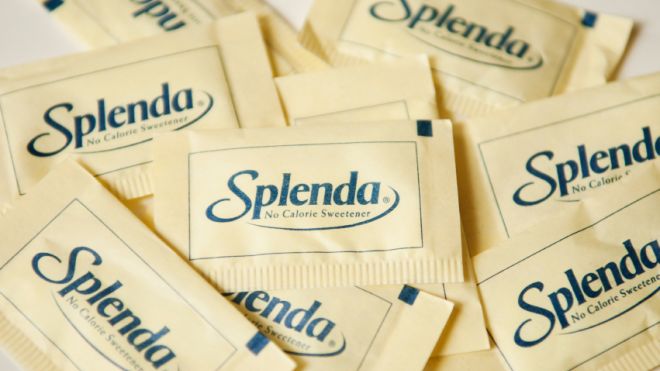
The artificial sweetener sucralose (sold under the brand name Splenda) could potentially pose health risks, so it needs to be better understood before the sweetener should be assumed to be safe, one advocacy organization says.
The Center for Science in the Public Interest, a nonprofit watchdog group, said today that it was downgrading its safety rating of sucralose from “safe” to “caution,” meaning that the additive “may pose a risk and needs to be better tested.”
The change was spurred by a recent study from researchers in Italy that found that sucralose caused leukemia in mice, according to the CSPI. This study has not been published, and needs to be reviewed by other scientists to determine whether the findings are credible.
While sucralose may turn out to be safer than other artificial sweeteners, “the forthcoming Italian study warrants careful scrutiny before we can be confident that the sweetener is safe for use in food, said CSPI executive director Michael F. Jacobson.
The CSPI recommends people avoid the artificial sweeteners saccharin (Sweet N Low), aspartame (NutraSweet and Equal), and acesulfame potassium (Sunett and Sweet One).
The issue of whether artificial sweeteners pose health risks is controversial. Many of the studies showing risks, including the new Italian study, have been done in animals, and it's not known whether the same effects would be seen in humans.
In addition, rodents, like humans, may develop cancer as a result of old age, and not exposure to chemical additives. This issue has caused some to question the results of studies showing that aspartame-fed rats are at increased risk for cancer over their lifetimes.
Even the CSPI says that it considers drinking diet soda, which often contains artificial sweeteners, to be safer than drinking regular soda. Regular soda “poses the greater and demonstrable risks of obesity, diabetes, heart disease, gout, tooth decay, and other health problems,” the CSPI said in a statement.
To avoid both the risks of sugar and artificial sweeteners, the CSPI recommends drinking water, seltzer water, flavored unsweetened waters, seltzer mixed with some fruit juice or unsweetened iced tea.
It's worth noting that the CSPI also gives caffeine a safety rating of “caution.” Caffeine “keeps many people from sleeping, causes jitteriness, and affects calcium metabolism,” the CSPI says.
Copyright 2013 LiveScience, a TechMediaNetwork company. All rights reserved. This material may not be published, broadcast, rewritten or redistributed.
source : http://www.foxnews.com/health/2013/06/12/how-safe-is-splenda-group-urges-caution-for-artificial-sweetener/